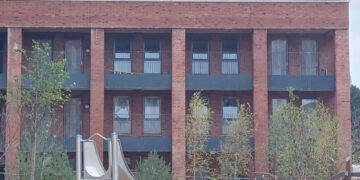A TWO-YEAR project to raise awareness of air pollution to young people and their families reached around 9,000 pupils from 28 different schools across Reading.
The Clean Air Living Matters: Exploring Reading (CALM:ER) programme was delivered through 53 sessions, including interactive workshops and assemblies in schools, all-day sessions at the University of Reading, parent engagement at school gates, and at community events around the borough.
Reading Borough Council led the government-funded programme with support from the University of Reading, engineering consultants Stantec and social enterprise Design Nature.
The programme aimed to engage primary and secondary schools to increase knowledge and awareness of air quality, causes of air pollution, its impacts and to explore solutions.
It also aimed to increase awareness of poor air quality in the wider community around school and encourage parents to consider their actions which may impact air quality.
Between January last year and July this year, the team visited 20 primary and eight secondary schools, delivering assemblies and workshops.
Assemblies included discussions about sources of air pollution, such as transport and wood burning, and its impact on health and ways of reducing it and avoiding exposure to it.
Air quality monitors were provided to participating schools and pupils were able to carry out indoor and outdoor air quality measurements over a period of time.
The results were analysed and discussed during workshop sessions. Pupils were also able to take real-time measurements and look at the pollutants detected, their levels and potential sources.
A total of 84 children from five different secondary schools also took part in air quality workshops at the University of Reading, which included laboratory experiments and monitoring on the campus.
Members of the team held more than 50 school gate engagement sessions during morning drop-off and afternoon pick-up times, resulting in conversations with 860 parents, carers and community members.
Activities extended beyond the school grounds with a presence in community events, such as Reading Cycle Festival, Kidical Mass Reading rides and the University of Reading Community Festival.
In total, it is estimated that between 26,000 to 33,000 people engaged in the CALM programme.
Feedback from schools involved in the project has been very positive with 70% wishing to retain and continue to use their indoor and outdoor air quality monitors.
Teachers say pupils have become much more aware of their environment within school and enjoyed checking the monitors and taking action, when necessary, by opening windows and doors.
The programme has also helped children to understand more about the causes of air pollution and its effects and sparked wider discussions about caring for the environment and how their actions can benefit everyone around them.
A range of materials has been produced to help support schools to continue to explore air quality when the programme has ended.
Cllr John Ennis, Reading’s Lead Councillor for Climate Strategy and Transport, said: “Improving air quality in Reading is a high priority for the Council and the CALM programme has been a brilliant way of engaging young people, their families and the wider community on this important subject.
“Although air quality is improving in Reading, pollution still poses a health risk, particularly for children, the elderly and people with lung and heart conditions, which is why this Council continues to invest heavily in public transport, whether that is buses and bus lanes, rail travel or improved pedestrian and cycle facilities.
“The CALM project has delivered fun and engaging sessions to more than 9,000 Reading children who now have much more knowledge and awareness of air quality, the common causes of air pollution and ways of reducing it.
“I would like to thank the Council’s partners and all the schools and teachers who got involved and helped make the CALM project such a success.”
Marta O’Brien, Research Scientist, University of Reading, said: “At the University of Reading, we focus on maximising our research impact and supporting positive change through engagement with local communities, particularly in addressing air quality issues.
“Thanks to the collaborative work on this project, we have created opportunities to expand environmental education, increase understanding of air quality, and support behavioural change through work with schools and communities.
“In doing so, we are helping families reduce their exposure to air pollution and make a positive difference in their daily lives.
“As our air quality research continues, we are pleased to see the impact this project has already had.”
























